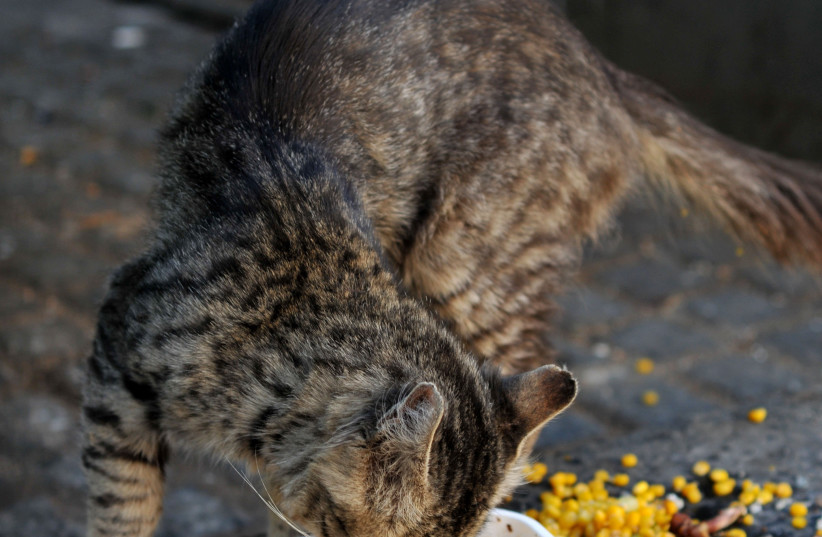An attempt to smuggle animals into Israel was thwarted a few days ago by customs inspectors at Ben-Gurion Airport. They caught a young man returning from Hungary with three lizards and two snakes hidden in socks, a plastic box, bags and foil.
Bringing animals to Israel without a lawful permit is considered a crime since it poses a threat to public health. Non-native animals could bring dangerous diseases into the country and harm local nature. What is more, the smuggling of animals often involves cruelty to those animals. Therefore, legal proceedings have been opened against the smuggler and the reptiles will be returned to their country of origin.
Worldwide illegal plant and animal trade
The phenomenon of illegal trade in animals and plants is growing worldwide and it directly affects the field of nature conservation. Only recently did an international operation to prevent the phenomenon, led by Interpol and the World Customs Organization (WCO), end. Nature conservation organizations from 125 countries participated in the operation, including the Israel Nature and Parks Authority. The Ministry of Agriculture and the Border Guard also participated in the operation.
The international operation, called "Thunder 2022," prevented the smuggling of 119 cats, 136 monkeys, 750 birds, 1,190 turtles and nine pangolins among other animals, worldwide.

"the purpose of the operation was to create cooperation between countries to detect and enforce illegal trade in animals and plants, including smuggling."
Ben Rosenberg, Director, Animal and Plant Protection Division, Nature and Parks Authority Enforcement Division
Trade in animal parts or organs was also included in the operation's efforts. Authorities seized 780kg of ivory, half a ton's worth of reptile body parts and a host of other animal parts. During the operation, 934 suspects were arrested or detained for questioning around the world.
Ben Rosenberg, Director of the Animal and Plant Protection Division at the Enforcement Division of the Nature and Parks Authority said that "the purpose of the operation was to create cooperation between countries to detect and enforce illegal trade in animals and plants, including smuggling. This operation is of great importance beyond the immediate goal of apprehending the contraband, there is also a goal of increasing international awareness of animal abuse and trafficking."
Rosenberg noted that "one of the advantages of such an operation is the creation of international relations with parallel bodies, which allows us to better enforce and prevent such attempts as much as possible, for example, an incident in which Israelis were caught by the local enforcement authorities, with parrots bought in Europe and intended for smuggling and trade in Israel."
Rosenberg also explained that "as a general rule, the place of wild animals is in nature, and therefore the Nature and Parks Authority prohibits the maintenance and breeding of local protected wild animal species. However, when you request to import and breed non-native species that are common in international trade, the request is examined by the professionals at the Nature and Parks Authority according to four principles."
Four guidelines for importing animals
"The first principle is local nature conservation, therefore, any species that you want to import to Israel must undergo a risk assessment to make sure that it does not become an invasive species here. Invasive species crowd out and harm local species, are a nuisance and usually cause significant damage to agriculture."
"The second principle is global nature conservation. In accordance with the Convention for the Regulation of Trade in Natural Values, we do not allow the introduction of species whose populations are at risk in the countries of origin."
"The third principle is that we do not allow the entry of dangerous species that may cause harm to a person, such as poisonous snakes or predatory species."
"The fourth principle is that we do not allow the trade and maintenance of species that require special knowledge [to take care of], such as monkeys of various kinds, which may lead to severe damage to their well-being and even animal suffering."
The extent of animal trade in Israel
"Unfortunately, quite a few animals are smuggled into Israel and there is an extensive trade in them. What we catch is a small part of all the smuggling. The volumes we are talking about are large and we have a limited team that is weak in the field, but we try to maximize our capabilities through a variety of means," said Rosenberg.
Dr. Tamir Geshen, Director of the Veterinary and Health Services of the Ministry of Agriculture, said that "in recent years we have learned firsthand the importance of preventing the spread of diseases from animals to humans. It is our duty in the veterinary services to make sure that the importation of animals is done legally, and does not pose a danger to public health, as well as to animals in Israel while maintaining their well-being during transport."
